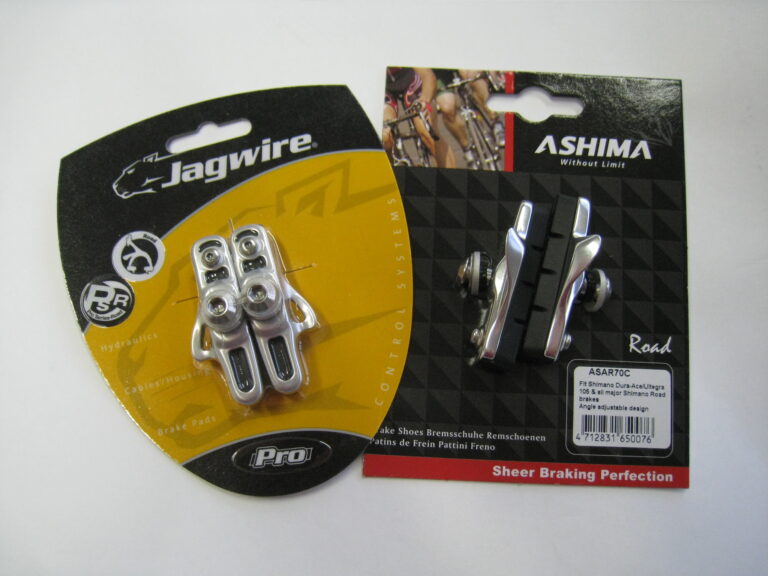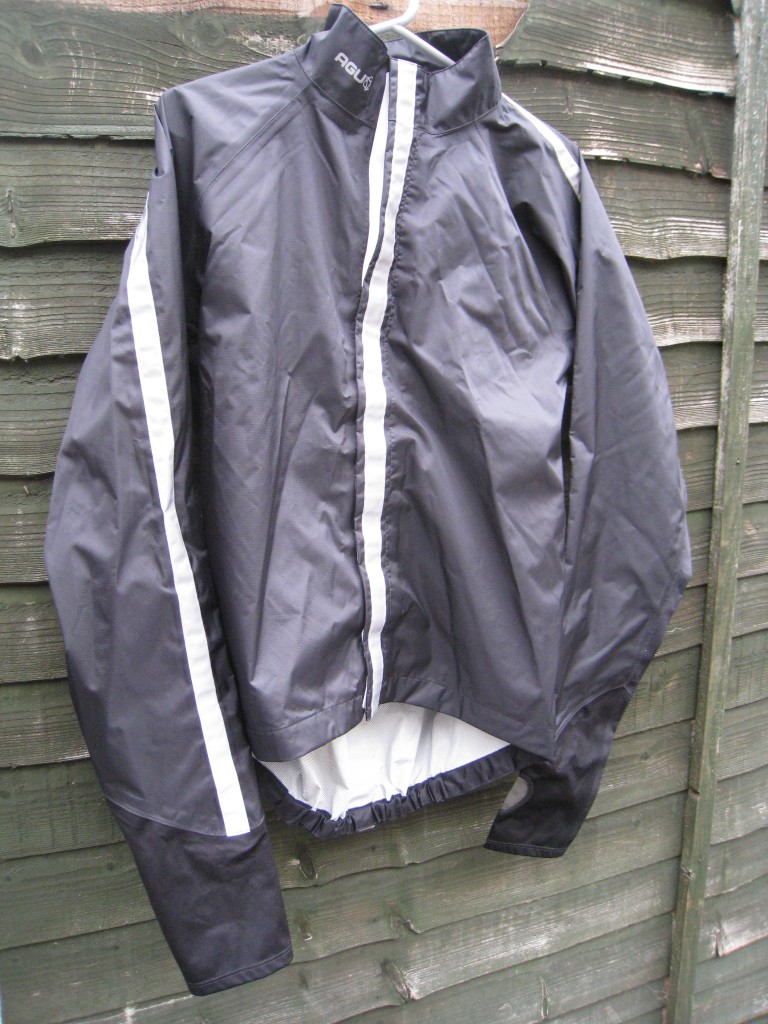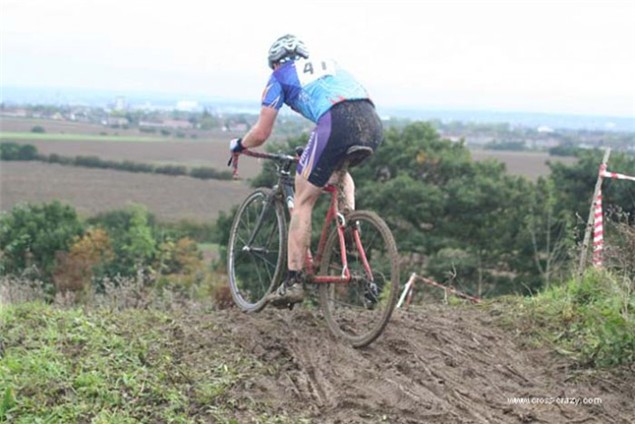
I didn’t really mean to ride away from the bunch. [Pull the other one – ed.]A rider had been away for half a lap, a marginal lead at best, so when I drifted away from the bunch as it was freewheeling down the fast hill, I put in a handful of earnest pedal strokes, and before I knew it I was bridging the gap to the lone escapee.
I’m racing at Hog Hill on the Bank Holiday Monday just gone. The circuit, based in a rather desolate part of east London, is a challenging one. The course rolls down the side of a steep hill and loops around like spaghetti accidentally dropped on the kitchen floor. It’s not my favourite circuit; the steep hill that precedes the finish line is far too steep, but I’ve had some reasonable results here, which keeps me coming back.
I’m rapidly approaching the rider I’m chasing. Coming up behind him, I tuck into his slipstream, and slip, unnoticed by him, onto his wheel. I allow myself to catch my breath, control my breathing, and get my heart rate down a few beats, before taking a turn at the front. He seems a bit surprised to see me. Was he not paying attention?
Leading up the hill, I keep a lid on my level of effort – this is a tentative prod into the unknown; how quickly will they want to chase me down? Will they leave me some breathing space before clawing me back? – and reaching the top up the ascent, a glance over my shoulder reveals my temporary companion has dropped back. I’m on my own. So I decide to push on. I might as well, I think to myself.
My gap grows steadily. 10 seconds. After two laps they’ve nearly pulled me back, it’s nearly all over, but I press on a little harder. Dig a bit deeper, but at the risk of incurring the pain of the lactic acid build-up. The gap increases. “20 seconds”, I hear the commentator at the start/finish area announce. I get loads of encouragement from the assembled spectators, a round of applause, a few cheers, it helps my motivation, my desire to continue the suffering.
Lap after lap, I manage to maintain the slim advantage. I realise, after several laps and what feels like forever, I don’t need to pound on the pedals, but instead conserve energy for the hill and concentrate on maintaining a good rhythm around the rest of the circuit. That and carrying as much speed down the hill and through the corners as I can where, as I found earlier in the race when in the bunch, I was able to easily make up ground.
All sorts of thoughts flash through my mind. Negative thoughts come and go: part of me wants the pain, the suffering, to stop, the peloton to swallow me up and carry me to the finish. But I begin to imagine how great it would feel if I can muster the strength to keep on pushing to the finish, if this gap is maintained to the last lap, the feeling of elation on winning the race after being out on my own for so long, all suffering would soon be forgotten. Briefly, the faint taste of victory crosses my lips.
But deep down, I know I’ve gone too early. My legs are tying up, the headwind over the steep hill and around the bottom circuit becomes stronger with each passing lap, the strain as I push and pull at the pedals over the hill nearly too much. But the assembled spectators give me a round of applause, some encouragement, at my valiant bid for a freedom each lap spurs me to dig deep.
Does it hurt this much when Cancellara makes a bid for a solo victory? Do riders like Gilbert, Millar, question their motives when in solo breakaways? Do they too ask deep, searching questions of their psyche, their motives and motivation for racing? Do they too face a battle between the hunger to win and the desire for the suffering to just stop? I don’t know, but I certainly do. I try and block it all out, and concentrate on my pedalling, watching my speed, keeping an eye on the gap back to the chasing group.
Soon the inevitable happens. With the bell marking the start of the last lap in my ringing in my ears, the group is finally upon me. Today wasn’t to be my day. Under different circumstances it might have worked; had I gone several laps later, had I had a partner or two to share the workload with, the outcome might have been different. But not today.
I drift back through the bunch, which is now a chaotic melee as everyone jostles for position, readying for the bunch sprint that is about to happen. I dig deeper than I have all day, wipe the sweat away from my face and remove my sweat-stained Oakleys. I stick them in a jersey pocket and latch onto a good wheel near the front of the group.
The pace ramps up. It’s getting messy. Some panicked shouting. A metallic scraping sound, the coming together of two bikes, no doubt. Gears clicking and crunching. Riders weaving about, switching lines. A high sense of anticipation, so much nervous energy in the group.
BOOM!
A rider has exploded from the group and is rocketing up the climb. He’s got a gap, but is being hotly pursued by another, then another, and another. I flick the gear lever, up one gear, and jump after them. A couple of wheels ahead, a couple beside me, I’ve timed my move well. The gap to the leaders is closing; the rider beside me is going backwards. Cresting the hill, I sprint past the rider ahead and slump over the finish line in third place. And with that, I’m finished, but elated with my positive race and decent result after a break that turned out to be nearly 30 minutes long.
I collapse into a sweaty pile on the nearby steps, and catch my breath, and begin wondering where I can improve before the next race.





